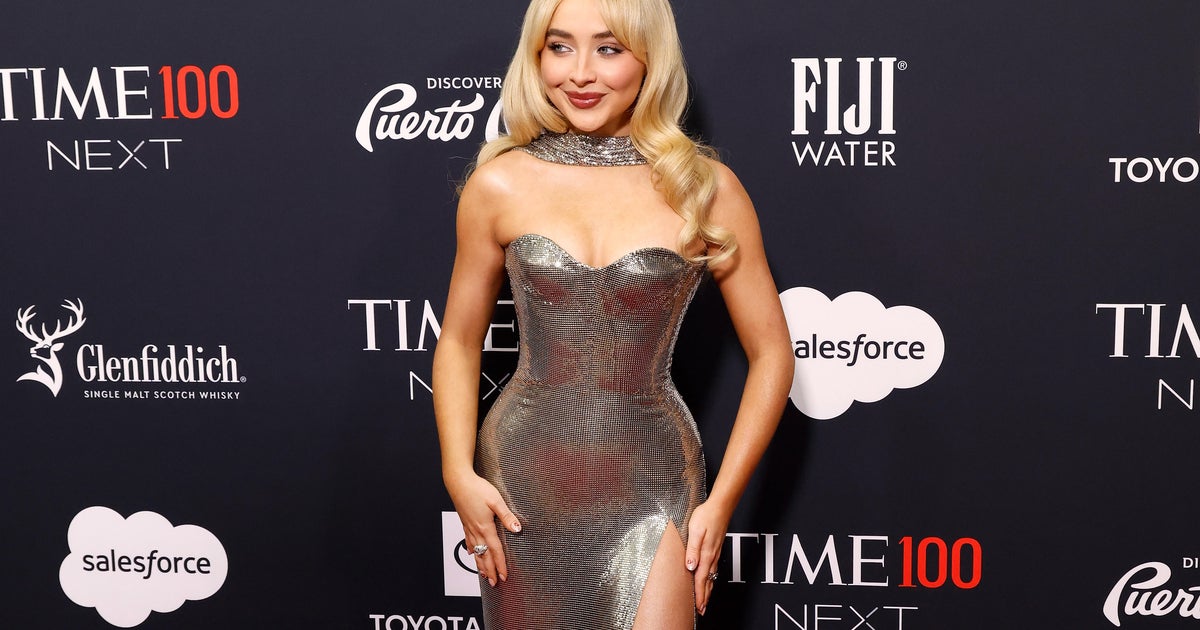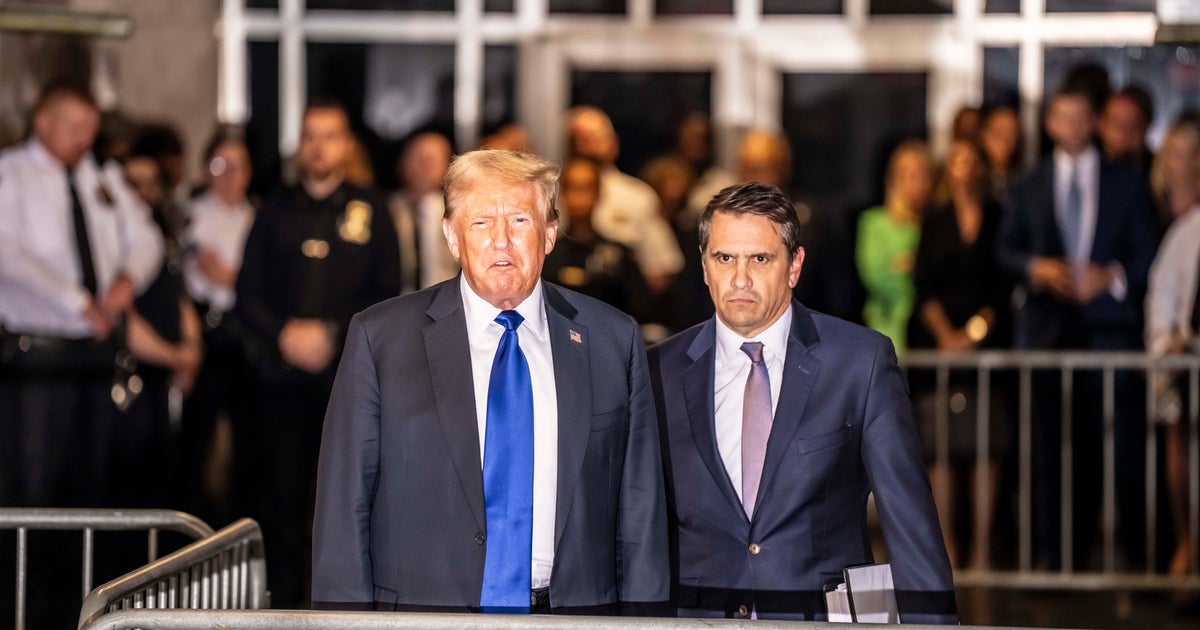CBS News
NYC priest who allowed Sabrina Carpenter to shoot a music video in church stripped of duties

NEW YORK – There’s more fallout for a Brooklyn pastor who allowed pop star Sabrina Carpenter to film a music video inside his church.
Monsignor Jamie Gigantiello has been stripped of his duties at the Annunciation of the Blessed Virgin Mary Church in Williamsburg.
Church officials said they were appalled he permitted Carpenter to film the provocative video last year for her hit song “Feather.”
The Diocese says an investigation revealed instances of mismanagement, including unauthorized financial transfers to a former aide in the Adams administration, which is now the subject of a corruption probe.
“Evidence of serious violations”
“I am saddened to share that investigations conducted by Alvarez & Marsal and Sullivan & Cromwell LLP have uncovered evidence of serious violations of Diocesan policies and protocols at Our Lady of Mount Carmel – Annunciation Parish,” Bishop Robert Brennan said. “In order to safeguard the public trust, and to protect church funds, I have appointed Bishop Witold Mroziewski as administrator of the Parish.”
Brennan, who oversees Catholic churches in the New York City boroughs of Brooklyn and Queens, said he also relieved a deacon who had been appointed as a temporary administrator during the investigation. He said the deacon had used racist and other offensive language during private conversations in the parish office that had been secretly recorded at Gigantiello’s direction.
Gigantiello didn’t respond to email and Facebook messages seeking comment Monday.
The controversial video
Released on Oct. 31, 2023, the “Feather” music video revolves around men behaving badly toward Carpenter before meeting grisly deaths.
At points in the video, the former Disney Channel star is seen pulling up to the distinctive brick church in a pink hearse and then dancing in front of the church’s ornate altar wearing a short black dress and a black veil alongside a colorful array of faux coffins.
In a letter to parishioners last November, Gigantiello said approving the filming was a “lapse in judgment” and maintained he wasn’t present at the time and didn’t realize how provocative the shoot would be.
On Monday, Brennan said a broader review uncovered other instances of administrative impropriety.
Among them is an ongoing investigation into Gigantiello’s use of a church credit card for “substantial” personal expenses, he said.
From 2019 to 2021, the monsignor also transferred $1.9 million in parish funds to bank accounts affiliated with Frank Carone, Adams’ former chief of staff, Brennan said.
The bishop said Gigantiello failed to seek prior approval for the transactions and didn’t properly document them, in violation of the diocese’s investment policies and protocols.
Carone’s law firm repaid $1 million of the funds, along with about 9% interest, according to Brennan. Gigantiello also requested early repayment for the remainder, but without the substantial interest called for under the loan notes, the bishop said.
Federal investigators have subpoenaed the Brooklyn church seeking information about Carone and Gigantiello’s financial dealings, though neither has been accused of any wrongdoing.
Brennan stressed the diocese is “fully committed” to cooperating with law enforcement in its investigations.
Meanwhile, the commotion set off by her music video hasn’t been lost on Carpenter.
She made light of it during a concert at Madison Square Garden in late September, just days after Adams became the first New York City mayor indicted while in office.
“Damn, what now?” she said cheekily to the Manhattan crowd. “Should we talk about how I got the mayor indicted?”
CBS News
Chicago owed nearly $20 million in police overtime for special events this year; taxpayers may be on the hook

CITY HALL — The city spent $22.6 million on police overtime for special events this year but has only been reimbursed $2 million, leaving taxpayers to cover the remaining costs.
City law requires special event producers to pay for police services beyond 12 shifts. However, an investigation by Block Club Chicago and CBS Chicago revealed through records requests that the city has not been retroactively charging for those costs.
Chicago hosts hundreds of street festivals each year, with approximately 1,300 events held between 2021 and 2023. During that period, nearly 2,800 Chicago police officers logged a combined total of 27,000 overtime hours to patrol these events, according to a CBS News Data Team analysis of police overtime records and special event permits.
At a Chicago Police budget hearing on Friday, officials confirmed that a significant portion of the overtime associated with special events has gone unreimbursed, attributing the issue to a “decentralized system.”
In 2024, the police department spent $22.6 million on special event overtime across various music, street, and neighborhood festivals. About $7.2 million of that is attributed to ticketed events like Lollapalooza, the Chicago Marathon, and NASCAR. However, the city has only been reimbursed for Lollapalooza and the Chase Corporate Challenge, totaling just under $2 million, police officials disclosed on Friday.
The 2024 figures are an increase from 2023, which saw $19.2 million spent in police overtime across all special events, police officials said. It’s currently unknown how much of that was reimbursed to the department. Special events include large ticketed festivals, street festivals, athletic events and bar crawls. Chicago hosted 677 special events in 2023, according to records obtained by CBS Chicago.
The revelation aligns with months of unanswered public records requests directed at the Department of Finance, which has been unable to produce invoices for police overtime at street festivals.
While the department did provide invoice data for traffic control aides at events like Riot Fest, Lollapalooza, and several 5Ks, it referred CBS News to the city’s Public Safety Administration for police overtime. However, the Public Safety Administration has not responded to records requests for police overtime details and did not return requests for comment.
“What may make more sense is we can provide all of our historical data about what our costs are, and we can provide that to DCASE, we can provide that to the Department of Finance. We can give a unified city service quote at the front end,” said Ryan Fitzsimons, Deputy Director at the Chicago Police Department.
During a budget hearing for the Department of Cultural Affairs and Special Events last week, officials revealed that their department is not involved in the invoicing process for reimbursing police overtime, raising concerns among aldermen that permits are being issued to event producers with outstanding balances.
On Friday, police officials said that despite the lack of reimbursement, they do not have the authority to block special event permits unless there are safety concerns. This lack of enforcement power leads to ongoing accountability issues with invoicing, they noted.
“We conduct numerous after-action meetings with OEMC and other city agencies. The problem is that, while we identify these reimbursement issues during those meetings, they are not addressed in subsequent permits issued the following year,” said Chief Duane DeVries, head of the Bureau of Counterterrorism with the Chicago Police Department.
After each permitted special event, the Chicago Police Department generates an “event evaluation form” that tracks the number of incidents and officers assigned to the event.
On Friday several aldermen requested event evaluation forms for various Chicago’s special events.
In July, the CBS News Data Team and Block Club Chicago requested event evaluation data for various events from 2019 to 2024, including PrideFest, Market Days, Wicker Park Fest, and Lollapalooza. The department said the evaluations were kept on paper. A request for those documents was made in August. As of last week, the department is still working on that request.
All special event producers are required to present security plans to Chicago Police for feedback before the city’s events department issues a permit. The amount of private security is determined by various factors, including the event’s history, location, current events and crime trends. Event organizers suggest a security plan and the police department approves, denies and makes suggestions.
Because of this, some special event producers have argued that they should not be required to pay for police overtime.
“It’s like someone coming and painting your house and then saying, ‘I want you to pay for it.’ … Well, I didn’t want you to paint my house,” Hank Zemola, CEO of Special Events Management, previously said. “I ordered all this (security) so we wouldn’t have to do that.”
Special Events Management puts on numerous special events including street races and neighborhood street festivals. The company organizes some of the city’s most popular street festivals like Pridefest, Ribfest and others.
By city law, street festivals cannot charge an entry fee but can propose suggested donations for entry. With suggested donations in decline, inflation making festivals more expensive to produce and consumers spending less, Zemola estimates that at least 50% of the company’s events this year lost money.
Still, with the City Council looking for cost-saving measures aldermen are eager to close the loophole that is hemorrhaging money from this city.
“I hope that with the information … your department provides us, we can, from the council side, work on maybe a better process that gives you guys … a seat at the table … so that we can better manage and join our resources,” said Ald. Maria Hadden (49th).
This story was produced under a collaboration with Block Club Chicago, a nonprofit newsroom focused on Chicago’s neighborhoods, and CBS News Chicago. Melody Mercado contributed to this report.
CBS News
Prosecutors urge judge to consider postponing Trump’s sentencing until after his presidency

President-elect Donald Trump’s six-year New York criminal odyssey might need to continue for at least another four, prosecutors said Tuesday.
Lawyers for Manhattan District Attorney Alvin Bragg wrote in a letter to Justice Juan Merchan that Trump should not be sentenced for his crimes until after he completes his second term in office. That would be the year 2029, more than a decade after the investigation into Trump’s coverup of a “hush money” payment began.
This is a breaking story. It will be updated.
CBS News
SpaceX to launch Super Heavy-Starship on sixth test flight

Watch CBS News
Be the first to know
Get browser notifications for breaking news, live events, and exclusive reporting.







